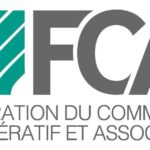The Federation of Cooperative and Associated Commerce (FCA) and the French Franchise Federation (FFF) propose new adjustments to the law regarding printed advertising and advertising inside business windows.


First of all, no concrete link between the fight against light pollution, visual, aesthetic and a text aimed at protecting the climate is not established. Too, when the advertisements are located inside the windows or bays of a commercial premises, the rules of the environmental code aimed at protecting the living environment do not apply to them. The assessment of visual or aesthetic pollution is particularly subjective, and will naturally give rise to divergent assessments from one municipality to another., from one mayor to another, which makes it particularly difficult to implement this regulation. In addition, such an increase in administrative procedures borne by traders, who will notably have to make requests for prior authorization to set up their store, can only aggravate the difficulties they face in the context of the unprecedented economic crisis we are going through. We would like to remind you that the window is a major marketing tool, particularly for networks with brands for which the identity of the brand, branding is essential. The identity of a brand, of a national brand, indeed imposes homogeneity of shop windows throughout the territory. The window is, as a reminder, an extension of the store. She is the first point of contact with the passerby, with the aim of capturing their attention and expressing the identity of the brand. It allows you to communicate about an offer, a specialty, a promotion, to display something new, to highlight products to develop sales. There is therefore a major risk that a local advertising regulation applied to store bays and windows will prevent the merchant from freely exercising his profession., and the brand to deploy its communication in suitable conditions. In view of its purpose, such a measure would therefore cause a disproportionate attack on property rights and freedom of trade..
Against the ban on printed advertising
What the bill currently proposes : an experimental system called “Oui-Pub” aimed at prohibiting in certain territories the distribution of unaddressed advertising material in letterboxes, when this authorization to receive them is not expressly displayed. Our main request : delete this measure, while the distribution of prospectuses is still today an essential tool for expressing free competition and providing consumer information. In addition : replace this ban with an examination of the effectiveness of the new fine which entered into force on January 1, 2021, punishing non-compliance with the “Stop-Pub” with a fine of 1,500 euros. The FCA and the FFF note that printed advertising remains today one of the essential tools for expressing free competition. Printed advertising is a major means of communication with consumers : information on promotions, store hours, generate traffic, capture a volatile clientele… According to the economic interest group BALmétrie, printed advertising generates on average 9% additional traffic (including 20% of consumers who have never visited the point of sale) and 13% additional turnover for stores (Etude Kantar WordlPanel (2019). Faced with instabilities regarding printed advertising, investments would be shifted to digital alternatives that have a greater impact on climate change (Quantitative study (2020) Study of the environmental impacts of paper communication solutions compared to digital solutions), without having comparable effects on store activity.
Economic and social impacts
A recent study by ADEME* shows that 65% of French people say that printed advertising helps to improve their consumption choices thanks to better information and 63% that they help to better control their budget.. This service provided to purchasing power is all the more exacerbated by the economic crisis linked to the coronavirus. We also note, as highlighted in the impact study of the bill, that the elimination of printed advertising could have considerable economic and social impacts. Indeed, brands' transition efforts to digital have led to losses in market share, of turnover . This new measure will jeopardize printed matter printing/distribution companies and the many jobs in the sector in the territories.. Advertising print alone supports nearly 60,000 non-relocatable jobs. – including 10,000 Mediapost employees and 20,000 Adrexo employees – mostly on permanent contracts. According to the Direct Distribution Union (SDD), projects included in a sustainable ecological transition could not amortize, in the short and medium term, the elimination of thousands of jobs linked to the “Oui-Pub” experiment. Potentials, these projects would also require the recruitment of qualified workers in targeted activities, even though the “Yes-Pub” experiment would cause the elimination of open jobs without any particular qualification requirement. We are therefore categorically opposed to the idea of experimenting with “Oui-Pub” with the aim of suppressing, eventually, advertising leaflets.
The sufficient “Stop-Pub”
The existing “Stop-Pub” system fully ensures the objective of reducing unnecessary printed matter. Particularly effective, it allows unsolicited printed materials to be directed towards people who agree to be solicited. According to ADEME), 73% of French people also indicate that the strengthening of “Stop-Pub” (provided for by the AGEC law) is the most relevant way to meet the needs of people who do not wish to receive advertising. The recent strengthening of the sanction in the event of non-compliance with “Stop-Pub” is likely to further increase its effectiveness.. Too, advertising print distribution operators who are members of the Syndicat de la Distribution Directe (SDD), are committed to making progress on its respect with the signing of a Stop-Pub Respect Charter, the development with AFNOR of a certification framework on compliance with Stop-Pub and the development of a digital citizen platform for reporting situations of non-compliance with Stop-Pub and. The SDD also recently committed to the Voluntary Action Plan to strengthen Stop-Pub led by ADEME and supported by various stakeholders..
* Study for ADEME 2020 : Unaddressed advertising materials received in the mailbox – Survey of individuals : perceptions and practices of the French, assessment of the Stop-Pub system, prospects for receiving unaddressed advertising materials.














